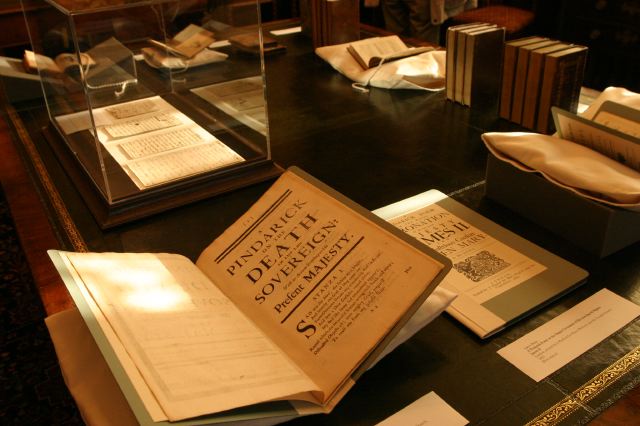by Bryony Hart
 |
| Chawton House Library |
This is an ultimate academic dream that I have been hankering after every since I completed my Masters Degree back in 2001. In various ways, through school trips and setting up the PGS Extend Project, I have been in regular contact with Chawton House Library. But it is not the same as actually throwing yourself into completely selfish and unadulterated research. As a teacher, I am always researching something or another; in fact, most of my summer holidays are taken up with it. However, research for teaching is different from research for academic progress. When preparing for lessons, I am always thinking, “How can this be translated into an interesting lesson?” Or, “which bits of this essay really fit what we have been studying?” Every piece of research for school is slightly ‘tinted’ by the fact that there needs to be an outcome for my pupils. Not that this is a bad thing, it is just very different.
So the one thing that most people don’t expect in response to their excited exclamation when asking about how I am feeling about researching for six weeks is “well, actually, I am a little bit apprehensive!” I have waited 12 years for this moment and I am slightly worried that before I know it, I will be registering my classes and back at the chalk face with the faint recollection of dreamy academic research taking place some time ago. The other fear was, “Where do I start?” My topic, early women’s fiction and how it contributed to the rise of the novel, is a massive area of research. In academic terms, it is relatively new – in the 1970s feminist academics were reviewing the canon and were starting to pick apart the belief that it was men who solely contributed to the novel that we know and love today. It has taken some time for this unpicking to take place and some of the most groundbreaking arguments in this field have only recently been aired.
Where do I start?
Do I have an argument?
Which writers will I look at? Stick with the well-known or aim at unchartered territory?
What is my outcome?
These are the questions that ultimately caused the apprehension that I was feeling before half term. However, after much thought and browsing the Chawton Library catalogue, I was reminded that these questions are what make research so exciting. These are the questions that you need to keep open for as long as possible otherwise doors close and knowledge is restricted. Setting myself an outcome or title would be the death of my research.
Rather than selecting a lovely rare first edition, I opted for a secondary text called Revising Women: Eighteenth-Century “Women’s Fiction” and Social Engagement written by one of the leading specialists Paula R Backscheider. When I arrived at Chawton this morning, Backscheider was awaiting me and I quickly delved in to refresh my memory about some of the key arguments being made. Before I knew it, 3 hours had past and I was being politely asked to vacate the library during the lunch break. I had only managed to read 30 pages of criticism! However, one of the key quotations that reverberated through my mind as I wandering through Chawton’s vast English Landscape-style gardens, with the sun beating against my back, was ‘the habit of making ordinary women of central importance is considered the most revolutionary aspect of the early novel. Charles Piree objected in 1736: “What are [women] in civil society? a part of society, but a subordinate part that must receive the law and not give it …. Novels reverse the natural order: they make women independent from man.”’ My god, the absolute arrogance that women writers were up against … were they just a subordinate part? Is this completely true? Were all women simply passive simpletons as Piree would have us think?
When I returned to the library this afternoon, I requested the 1735 edition of A Wife Must be Lett (1724) by Eliza Haywood after noting that Backsheider referred to it on a number of occasions. It had been rebound but apart from this was in pristine condition. A real gem. In the opening preface, an appeal from Haywood, who actually appeared in the Drury Lane
It seems to me that Haywood is sharply criticising the marital status quo of this period. That marriage was ultimately an institution based on money and status rather than love. In fact, Haywood wrote another piece of fiction entitled The Fruitless Inquiry where she searches for a happy marriage but is clearly ‘fruitless’ in her ‘inquiry’. Unfortunately, this is a rare book: one copy at the British Library and a few in the US
And this is where I left it for the day. Driving back home, I ruminated on the fact that women were seemingly struggling to find a voice but were actually very successful in communicating their experiences through fiction. Backsheider concludes that ‘Women writers were struggling to bring into public discussion subjects and experiences previously excluded. They were exposing, even ridiculing the contradictions, hypocrisies, and ruptures in the public discourses and social codes that defined courtships rituals, the ideal man, and the good marriage.’
And my pre-sabbatical jitters? Fear of not having a specific focus for research? Gone in a matter of hours.
Let the next 5 weeks and 4 days commence.
Comments
Post a Comment
Comments with names are more likely to be published.